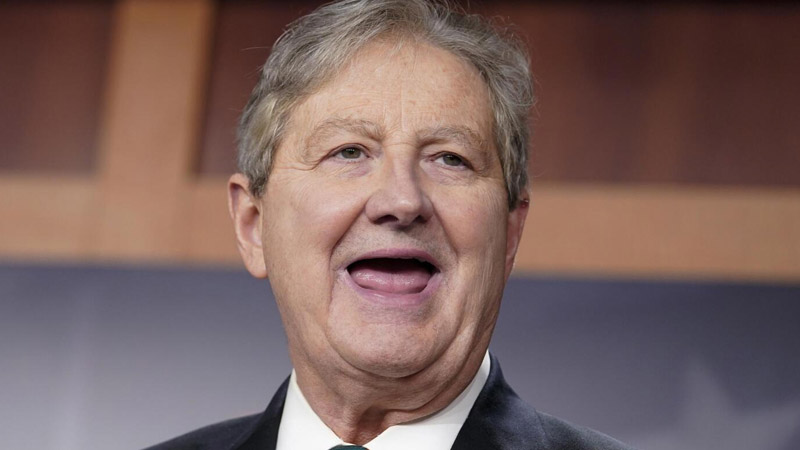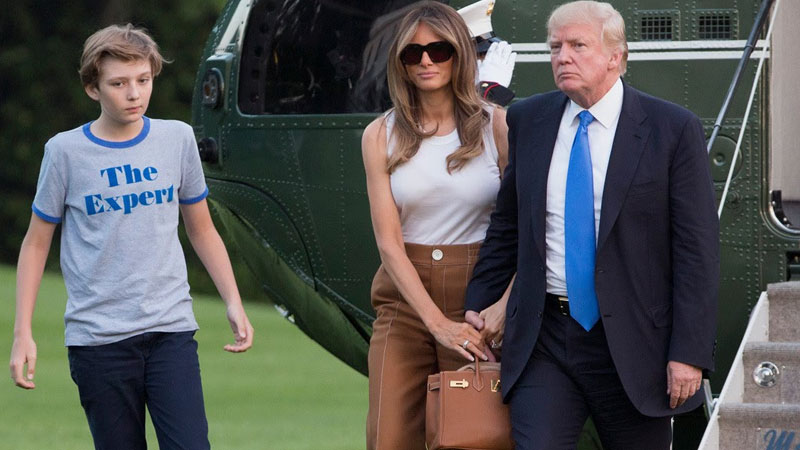“When the President Does It, It’s Not Illegal”: Senate Judiciary Committee Clashes Over Presidential Immunity Ruling

(AP Photo/Mariam Zuhaib, File)
A recent Senate Judiciary Committee hearing on presidential immunity sparked heated exchanges, as senators debated the implications of the Supreme Court’s latest ruling on the subject. The hearing, held on Tuesday, was filled with sharp remarks and biting critiques as lawmakers discussed how the ruling impacts the prosecution of presidents for actions taken while in office.
The hearing opened with Chairman Sen. Dick Durbin (D-IL) recalling a famous quote from an interview between former President Richard Nixon and journalist David Frost, in which Nixon said, “When the president does it, it’s not illegal.” Durbin used this quote as a springboard to criticize the way modern presidents, particularly Donald Trump, have interpreted their immunity, told the Hill.
“Though Nixon said it, it could easily have been Trump as well,” Durbin remarked, drawing a comparison between the two presidents. He went on to quote a statement Trump made on his social media platform, Truth Social: “Presidents have to be given total immunity. They have to be allowed to do their job.”
Defining Presidential Immunity
At the heart of the debate was the Supreme Court’s recent ruling, which found that presidents are immune from criminal prosecution for official acts carried out during their time in office. However, the ruling also established that this immunity does not extend to unofficial acts. The court’s decision has sparked a national debate over the extent of a president’s legal protection and the potential for abuse of power.
Sen. John Kennedy (R-LA) weighed in on the matter, stressing that while the ruling protects presidents from prosecution for official acts, it does not give them blanket immunity. “Prosecutors still have the right and authority to pursue criminal activity by a president in certain circumstances,” Kennedy said, adding that these cases still require proof “beyond a reasonable doubt.”
Durbin, in a pointed response, quipped, “Duh,” dismissing Kennedy’s comments as self-evident. The exchange highlighted the tension between Democratic and Republican lawmakers over the boundaries of presidential immunity.
Legal Experts Weigh In
The hearing also featured testimony from legal experts, including former Justice Department official Mary McCord. McCord underscored the challenges that prosecutors face when trying to bring a case against a sitting or former president. “Every prosecution has to present evidence to prove its case,” McCord explained, reinforcing the high bar required to secure a conviction.
McCord expressed concerns about the Supreme Court ruling’s impact on holding presidents accountable for their actions. She cited Justice Amy Coney Barrett’s dissent, which warned that the decision “significantly hamstrings the government” in prosecuting presidents for any wrongdoing tied to their official duties.
The ruling creates a delicate balance: while it protects presidents from prosecution for official acts, it limits the ability to use evidence of those acts in cases involving unofficial conduct. McCord argued that this limitation could make it harder to hold presidents accountable for crimes that blur the lines between official and personal actions.
A Divided Senate
As the hearing progressed, it became clear that the senators were deeply divided on the issue. Durbin and other Democrats expressed concern that the ruling gives presidents too much leeway, while Republicans like Kennedy emphasized the importance of protecting presidents from politically motivated prosecutions.
Durbin wrapped up the hearing by reiterating his concern that the ruling could be exploited by future presidents to shield themselves from legal consequences. “There’s a real danger here that we’re giving presidents the green light to act with impunity,” he warned.
The debate over presidential immunity is far from over, and the Supreme Court’s ruling will likely continue to fuel legal and political battles in the years to come. For now, the question of how to balance the need for presidential accountability with the protections afforded by the office remains a contentious issue.


